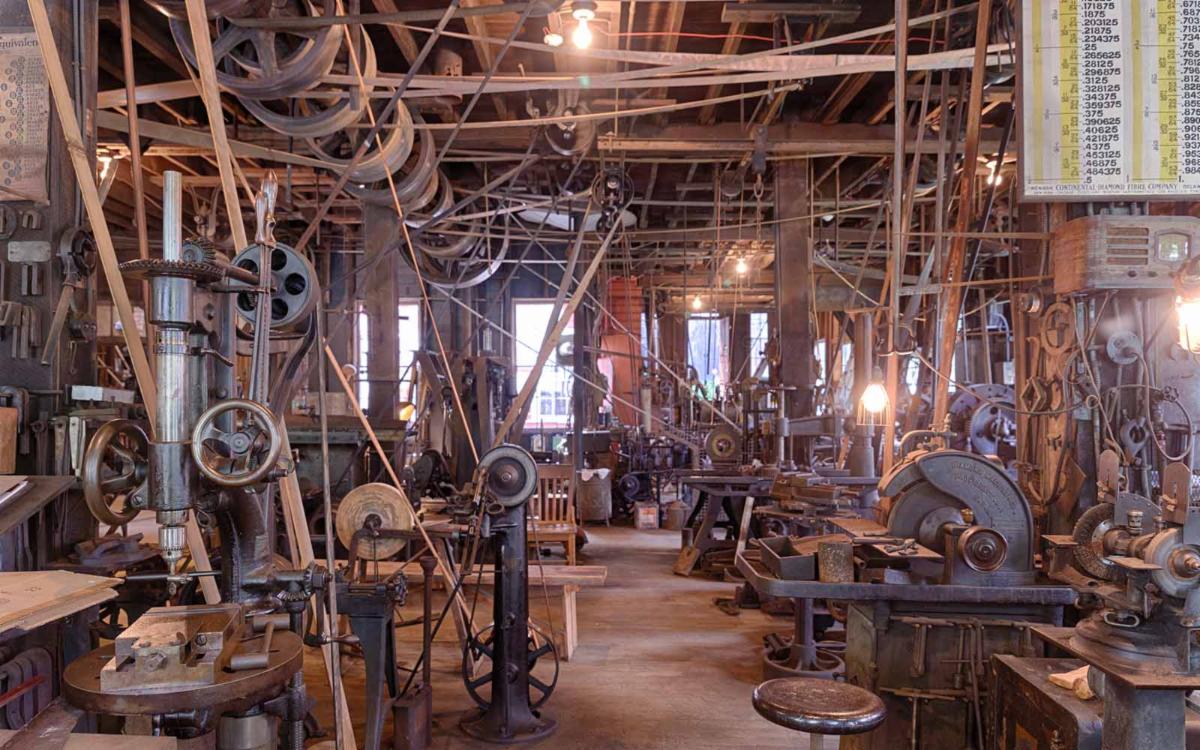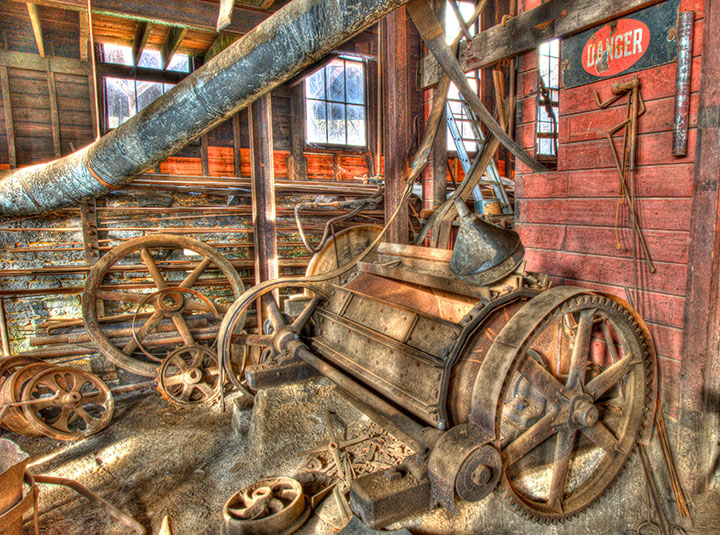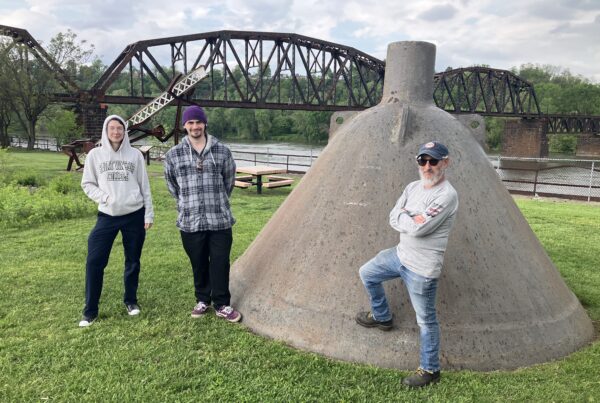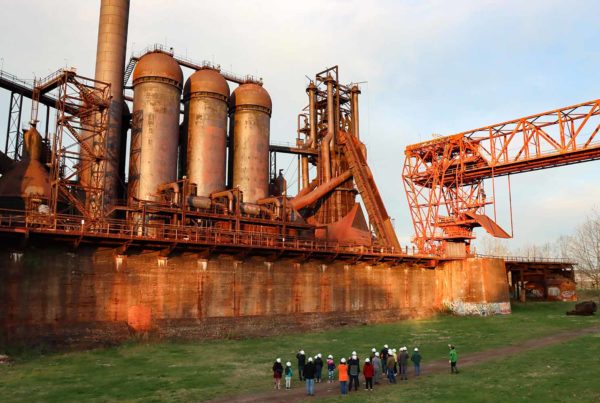
Summary
Celebrate 125 years of the W.A. Young & Son’s Machine Shop in Rice’s Landing—a rare industrial time capsule and National Historic Landmark.
Step inside the W.A. Young & Son’s Machine Shop in Rice’s Landing, Pennsylvania, and it feels as if the machinists just set down their tools for lunch.
The belts still hang from the line shafts, ledgers rest on desks, and patterns line the shelves–just as they were when the shop closed in 1965. This September, this remarkable National Historic Landmark celebrates its 125th anniversary with a special event on Sunday, September 14. It’s a chance to experience one of America’s most complete and best-preserved machine shops, often described as an “industrial time capsule.”

Origins and Operations
Founded in 1900 by William A. Young, a Green County craftsman, the shop was built from lumber sourced partly from his family farm. Over time, it grew to include a foundry with a cupola furnace, a blacksmith area, and a pattern shop.
Young equipped the shop with an array of machine tools—mostly purchased secondhand from Pittsburgh and beyond. A line-shaft system, first powered by steam and later by gas and electric motors, drove lathes, planers, grinders, and drill presses. This allowed the shop to serve as a “jobbing shop”, meaning no task was too small or too specialized.
Customers included coal mines, riverboat operators, railroads, farmers, and individuals who needed parts repaired or fabricated. The shop’s adaptability kept it indispensable for decades.
Shifts Through the 20th Century
The foundry closed in the 1930s under pressure from Pittsburgh’s larger operations, but the machine shop endured.
During World War II, the shop became part of the federal defense effort. It was adapted into a training center for men and women to learn machining skills essential to wartime production. This temporary transformation altered the rhythm of the shop, adding shifts, instructors, and even a secretary to handle reports. After the war, as coal production in Greene County declined, the shop shifted again—this time toward automobile repairs, even installing a grease pit in the former foundry.
But as industry consolidated and highways made it easier for businesses to bypass small towns, the shop’s customer base declined. When Carl Young, the last family operator, died in 1965, the shop closed its doors.
Preservation and Recognition
What sets W.A. Young & Son’s apart is its completeness. When the doors closed, everything–machines, tools, ledgers, even the hardware stock in the office–was left behind. The Greene County Historical Society acquired the building in 1985, later transferring it to Rivers of Steel, which cares for it today. Aside from a roof replacement in 2012, little has changed. Visitors see the shop much as it looked in both 1900 and 1965, offering a rare and authentic step back in time.
Legacy and Public Engagement
In a region known for industrial giants like Carnegie Steel, the W.A. Young shop tells a different story: One of small-town ingenuity, adaptability, and craftsmanship. The 125th anniversary celebration will bring that story to life with:
- Demonstrations of the line-shaft system in action
- Hands-on displays and talks that connect past and present
- A chance to explore the shop as it was left, tools still on benches and patterns stacked on shelves.
Visit the Machine Shop
Today, the W.A. Young & Son’s Machine Shop stands as a living classroom. It reminds us of the artistry and adaptability of small industrial communities. And thanks to dedicated preservation efforts, you can experience firsthand What work looked lie in an early 20th-century shop.
The 125th Anniversary Celebration will be at Rices Landing, Pennsylvania, Sunday, September 14 from 12 to4pm. Don’t miss the chance to walk through the time capsule and celebrate a story of resilience, craftsmanship, and community.








